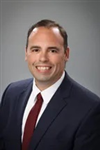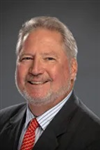Better understand how to assist religious organizations in keeping their exemption and what pitfalls to look.
Although churches and other religious organizations are generally tax-exempt, tax is a pervasive issue for religious organizations and clergy. Attendees can expect to gain a deeper understanding of the taxation of clergy and churches. Especially in regard to assisting religious organizations keep their exemption, what pitfalls to look for when representing a religious organization, and how to assist religious organizations if they are subject to tax inquire by the Internal Revenue Service. This workshop is critical for practitioners who represent churches or clergy members.
Learning Objectives
- You will be able to define ‘Clergy’, ‘Religious Organization’, and ‘Church’.
- You will be able to discuss the process of a tax inquiry and church examination.
- You will be able to explain the rules surrounding charitable deductions and § 170.
- You will be able to recognize potential pitfalls relating to prohibited church activities.
Agenda
Background Information and Definitions
- What Is a Religious Organization
- What Is a Church
- Who Are the Clergy
- Recognition of Tax-Exempt Status Under § 501
- Organizational and Operational Tests
- Public Benefit Doctrine
Clergy Wages
- Reporting Rules
- Parsonage Allowance
- Social Security
- Exemption for Clergy
- Difference Between How Wages Are Reported V Social Security for Clergy
- Church Employees
The Charitable Contribution Deduction
- What Is a Charitable Contribution Under § 170?
- Substantiation Requirements
- Planned Giving Devices
Church Audits and § 7611
- General Prohibition of Audits of Churches
- Church Tax Inquiries Under § 7611
- Prohibition Against Repeated Examinations
Pitfalls
- Unrelated Business Taxable Income
- Excess Benefit Transactions
- Excess Executive Compensation
- Restrictions of Political Activates/ Campaigning
Speakers

Andrew R. Vazquez, Esq.,
Asbury Law Firm- Associate at Asbury Law Firm, Tax Counsel
- Practice focuses on federal and state tax controversies, tax litigation, business tax planning, corporate organization, estate planning, and probate
- Was the 2023 Chair of the Taxation Section of the State Bar of Georgia and is named a Best Lawyers 2021-2024 Ones to Watch for Tax Law
- Prior to joining Asbury Law Firm, had practiced in Atlanta representing clients in the resolution of federal and state individual income, corporate income, and employment tax issues
- Delivered presentation at the National Conference for Special Needs Planning and Special Needs Trusts, delivering insightful strategies on ‘Settling IRS Disputes Without Litigation’
- J.D. degree, Georgia State University College of Law; B.A. degree, Georgia State University

Mark Mesler, Esq.,
Asbury Law Firm- Senior Counsel at Asbury Law Firm
- Retired Principal at Ernst & Young where he led the firm’s Tax Controversy practice for the Central and Southeast U.S.
- Over 35 years of experience working with the IRS in all matters, from the defense of the transfer pricing disputes to the abatement of penalties asserted against individuals
- Previous member of the Internal Revenue Service Advisory Council and served as Chair of the Large Business & International sub-group of IRSAC
- Had served as a trial attorney for IRS Chief Counsel
- Authored articles and delivered presentations on current tax examination issues, including practical implications of revenue procedures and valuation expert involvement in examination and appeals
- J.D. degree, Georgia State University; B.S. degree, Baptist University of America
Who Should Attend
This live webinar is designed for accountants, CFOs, controllers, accounts payable professionals, tax managers, presidents, vice presidents, bookkeepers, business owners, tax preparers, and enrolled agents.










